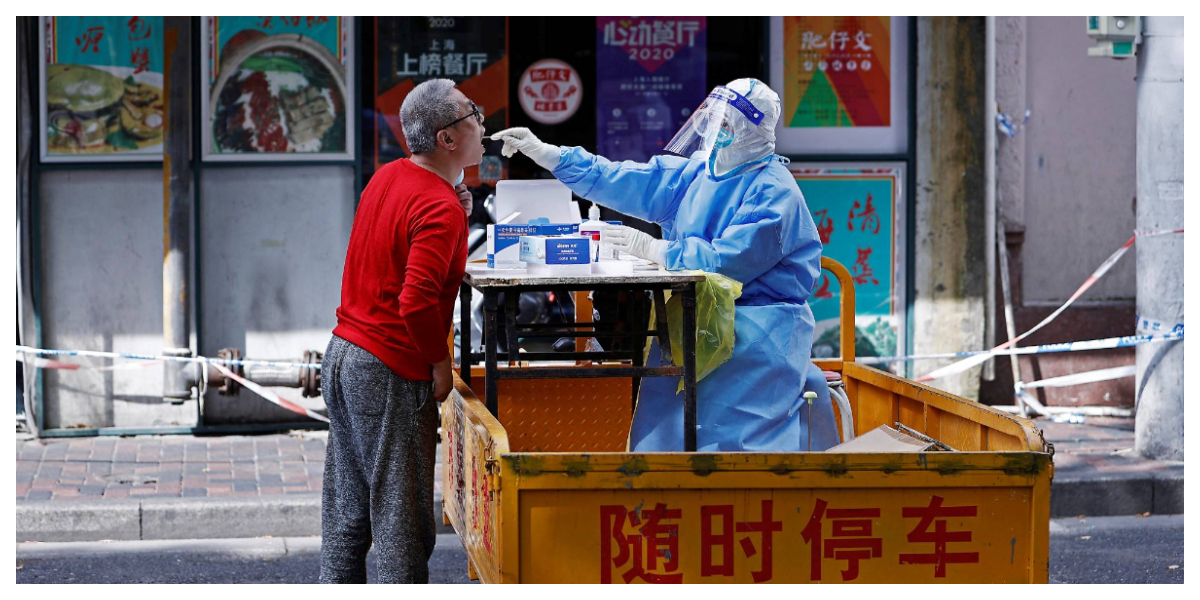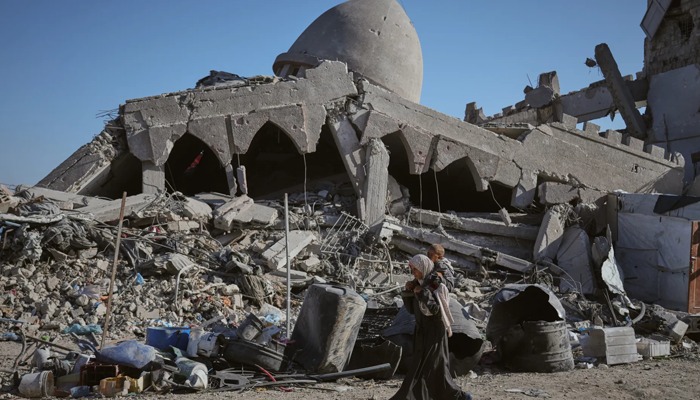BEIJING/SHANGHAI – Beijing closed some public places and tightened security in others on Thursday, as the majority of the Chinese capital’s 22 million people turned out for further COVID-19 testing in an attempt to avoid a Shanghai-style lockdown.
The majority of people in the business hub had been living in tense home isolation for a month and were trying to meet basic demands. However, there was reason to be optimistic since the number of new cases continued to fall, and officials stated that their attention was shifting to increasing vaccination rates among the elderly.
However, fears were rising that China will become locked in a whack-a-mole game in the coming months, releasing certain lockdowns while imposing others elsewhere, causing serious economic damage and aggravating its population.
Beijing shut down a number of residential compounds, offices, and a university this week as it conducted three rounds of mass testing around the city. Some schools, entertainment venues, and tourist attractions were also closed due to the storm.
Despite the fact that his test results were negative, Andrew Ward, 36, a Canadian residing in one of Beijing’s narrow alleyways of courtyard dwellings known as hutongs, was put to quarantine in a hotel on Thursday.
Ward was tested at home on Wednesday by persons in hazmat suits after he was recognised as a close contact of a COVID-19 case.
“I’m a little bit annoyed,” Ward, who teaches at an international school, said. “I spent all that money and effort collecting food for being shut down at home.”
Universal Studios Beijing has announced that starting Friday, visitors would be required to show negative test results in order to access the theme park.
On April 27, Beijing revealed 50 new cases, some of which were found among the approximately 20 million samples collected in the first round of mass testing. This was up from 34 the day before.
Over 160 cases have been discovered in Beijing since April 22, with more than half of them in Chaoyang, the city’s most populous area famed for its nightlife, shopping, and embassies.
In a critical year for President Xi Jinping, China’s zero COVID-19 tolerance policy has sparked rare public outrage over actions that seem absurd to much of the rest of the world, which has opted to live with the virus even as cases spread.
Authorities want to avoid a repeat of the scenes in Shanghai, where locals leaned out their windows and beat pots and pans in anger while people in protective suits constructed fences around their homes. Xi is poised to pursue a third term as president in year.
On Thursday, China’s currency fell to 18-month lows against the dollar as COVID-19 outbreaks jeopardised the country’s 5.5 percent economic growth target for this year.
However, stock markets (.CSI300) and (.SSEC) were off two-year lows in anticipation of greater stimulus after Premier Li Keqiang pledged to stabilise employment and resurrect shattered supply networks.
According to Nomura analysts, 46 cities are currently under full or partial lockdown, affecting a total of 343 million people.
[embedpost slug=”beijing-people-may-now-travel-with-no-one-behind-the-wheel/”]
According to Societe Generale, provinces with considerable mobility restrictions account for 80% of gross domestic product.
Millions of white- and blue-collar employees whose livelihoods rely on unrestricted movement between cities have been subjected to harsh travel restrictions in recent weeks, and goods transportation has suffered as well.
However, the ramifications extend beyond China, whose economy is vital to global supply systems.
Chipmakers Texas Instruments (TXN.O) and SK Hynix (000660.KS), as well as industrial conglomerates GE (GE.N) and 3M (MMM.N), have warned that China’s COVID-19 tariffs are affecting their income. find out more
A lockdown in Beijing would be less economically destructive because the city has little manufacturing and many workers can work from home. Nonetheless, the capital was racing against the clock to escape Shanghai’s misfortunes.
At the beginning of March, new infections in Shanghai were around 100 per day, but by the end of the month, they had risen to thousands, requiring a citywide lockdown and upending the lives of the city’s 25 million citizens.
The majority of residents are still confined to their homes, but the city is preparing post-lockdown plans.
“We are vigorously promoting COVID-19 immunizations on the premise that epidemic risks are managed, with the elderly as the focus point,” Zhao Dandan, deputy director of the municipal health commission, said.
Districts are now putting together community vaccination trucks and setting up makeshift immunisation stations in care homes, he said. Medical experts in China have defended harsh COVID-19 measures by citing the risk of death for tens of thousands of the elderly.
Officials revealed on Thursday that the average age of the 47 people who died from COVID-19 in Shanghai on April 27 was 84.7 years.




















